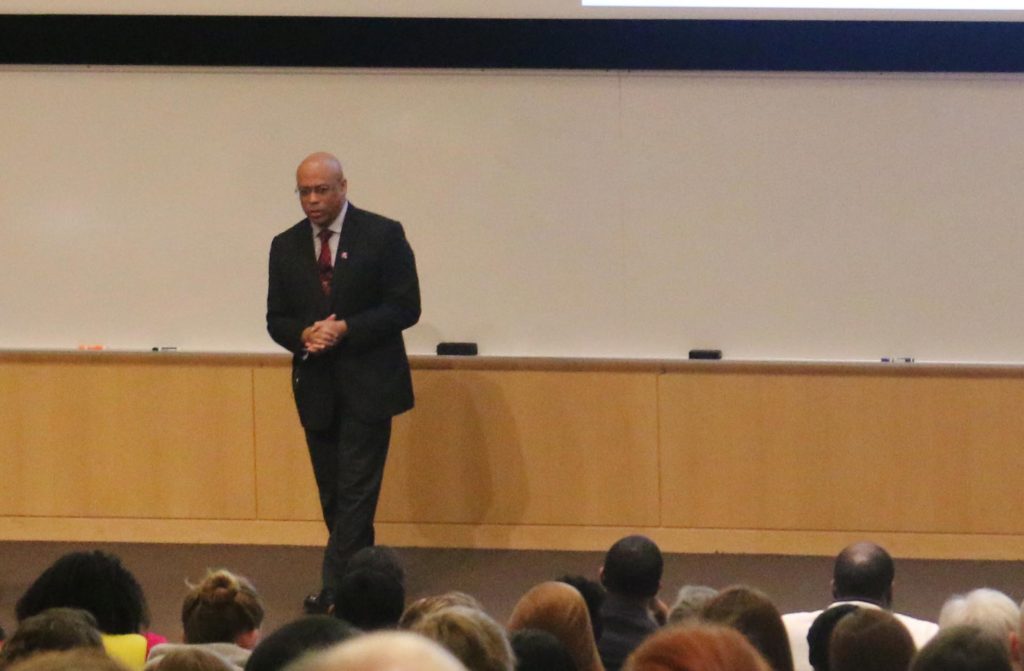Two of the major focuses of my blog are Career Discussions and Technology. Several new and novel technological innovations are under production and are coming online. One is robotics which are projected to soon impact every facet of world economies. It’s important to understand how robots will impact our world going forward. The following contributed post is thus entitled, The Surprising Professions That Could Be Replaced By Robots.
* * *

We’re all aware, in this day and age that most things are run by technology and that it’s overtaking more and more aspects of our daily lives. However, although there’s always a plus side to technology being able to manage things in our lives, such as making things more efficient and taking away the need for us to do everything on our own, there’s still the downside, and one of the main downsides is that many of the professions that we’ve come to rely on being done by people are now slowly seeing more technology, AI and even robots being introduced and changing how these jobs are done.
Most of us know that there are some professions that just make more sense to be run by technology and that it’s safer and better for human involvement to be taken out of these, however, in this post, we’re going to share with you some of the most surprising ones that people wouldn’t really expect to be replaced by robots, but that are slowly moving that way.
Lawyers:
Being a lawyer is still one of the best and most esteemed jobs out there to have, but as anyone who’s ever worked with one knows, they are expensive, and although most of the aspects of a lawyers job isn’t going to be overtaken by robots anytime soon since it still needs that human interaction, there are definitely parts that can be automated and done by robots and this is a big risk to those who work in this profession since this is going to impact a lot of the services they can charge their clients for. Only time is going to tell just how much automation by robots is going to impact the lives of those who wish to become or already are lawyers, but it’s definitely not immune from AI and it’s something that lawyers should be aware of so that they can make the necessary changes in the things they learn for their jobs to make them more desirable to clients.
Data Entry Professionals:
Data entry is something that’s considered to be a repetitive, and therefore, quite a boring and monotonous task, so it’s not really surprising that with all the technology we have today that data entry is something that someone’s found a way to automate and have replaced by robots. However, this certainly doesn’t mean that just because robots are taking over your job that they’re automatically going to be doing it better than you – after all, technology still makes mistakes, so as long as you’re able to adapt and perhaps change the role of what you do, for example, oversee the work the robots are doing, then you could find that you’re still able to keep your job with a little bit of a different role.
Taxi Drivers:
You may think it sounds crazy to consider the idea that a robot could overtake something like driving, but people who work as taxi drivers, Uber drivers, etc, are slowly going to find themselves being replaced by robots and driverless cars as this technology becomes more of the norm. Of course, this may not be the norm for quite some time to come, but if we’re being honest, then we know that’s definitely where the world is going, so it’s something that we need to prepare for. This doesn’t mean that if you drive a taxi or work for Uber that you’re going to be out of a job soon, it’s just something that you should be looking to adapt with because it’s always better to be prepared for these changes that are inevitable with the rise of AI and overall technology.
Engineers:
Due to the nature of different types of engineering, it was always going to be one of the first professions to embrace AI and robots in the workforce since the very idea of engineering is to make things work better and to grow with technology. Whilst engineering is going to be one of the main industries that sees this dramatic shift towards technology, robots and automation in the daily workforce, it doesn’t mean that engineers are going to be eliminated completely – it’s just some things that are able to be done more quickly and efficiently by robots, but when it comes to things like designing Statewide Bearings’ range of linear motion products, people are still going to be very much the preference for doing this kind of work, so it’s really not something you have to worry about too much until the technology is built that can do this better, and at the moment, it’s just not here.
Journalists:
This is probably one of the most surprising ones in this list because writing is something that humans do, and as much as technology is great, we know that it doesn’t have emotions and that’s what makes great writing, storytelling, and hard hitting journalism, so most people would really struggle to believe that something like an algorithm or robot would be able to write an article to the same level that a human would be able to, but this is actually proving to something that’s perfectly possible.
However, this doesn’t mean that journalists need to start worrying about their jobs – if they’re willing to move with the times and actually work alongside the robots and embrace automation and AI, then this could actually help journalists do their jobs better and create content that’s even more personalized to the reader, so this could essentially mean that in the future, instead of reading the same paper that everyone else is reading, you could be reading one that’s completely personalized to you thanks to the advances in technology that allow for the creation of this kind of content.
Chefs:
This is another area of upcoming automation and AI tech advances that’s really going to be surprising for a lot of people, and although it’s certainly not the end of chefs as we know them, things are definitely changing – perhaps for the better, which is of course going to depend on your perspective. For example, places like Burger King and Mcdonald’s have been hiring people since the beginning to carry out tasks like flipping burgers and take customer orders simply because in the past these were jobs that needed to be done by humans, but now there’s far more technology that can do this, and in many of these locations around the world, this technology has already been implemented and is proving to work well. Now, this doesn’t mean that there’s no longer a need for people to work in these places, but they can work more efficiently alongside technology.
When we think of more traditional restaurants, similar technology is being introduced – whether it’s ordering from your table using an iPad instead of having a waiter take your order, or even having robots take over some of the tasks that a chef would normallt do, it’s a great example of how people and technology can work well together.
Financial Analysts:
Like those who pursue a law career, anyone who works in the financial services or banking sectors may think they’re going to have a job made for life, but these industries are fast seeing technology and AI automation creep in. The reason why financial services are seeing such a big boost in this technology is because it really helps get things done quicker, more efficiently, and more effectively and accurately than humans can.
Although it’s predicted that over 30% of banking sector jobs will be lost to AI within the next 10 years, this doesn’t need to mean the end of a career – but simply adopting a different approach and moving with the advances instead of away from them.
Customer Service Professionals:
With more and businesses operating online and 24 hours a day, the need for solid customer services processes is increasing, but since nobody can be online 24 hours a day and hiring a team to work these round the clock hours is going to be a bit of a hassle – not to mention expensive, unless you’re some massive company, then automating this is a great idea, and luckily it’s becoming more common for tools and apps, and even AI technology or bots to be able to completely manage your customer service for you.
Medical Professionals:
At first glance, this one may seem completely crazy and even scary, but it’s honestly a much better thing than you probably think. The reason being is that medicine and the whole healthcare industry is one where we absolutely want to see as much advance as possible, and although there’s never going to be anything that can replace the role of doctors, nurses and medicine, there are certainly things that can be brought in to make, not only their jobs easier so that they’re able to focus more on the patients they’re caring for, but also this technology benefits the patients.
In some hospitals there are now robots that come in and carry out tasks like dispatching medication and bringing it to patients, taking meal orders and bringing food, but also helping with things like surgery so that these procedures are less invasive and make for shorter healing times than in previous times. The use of AI and robots in medical care is one area where it should definitely be welcomed.
















